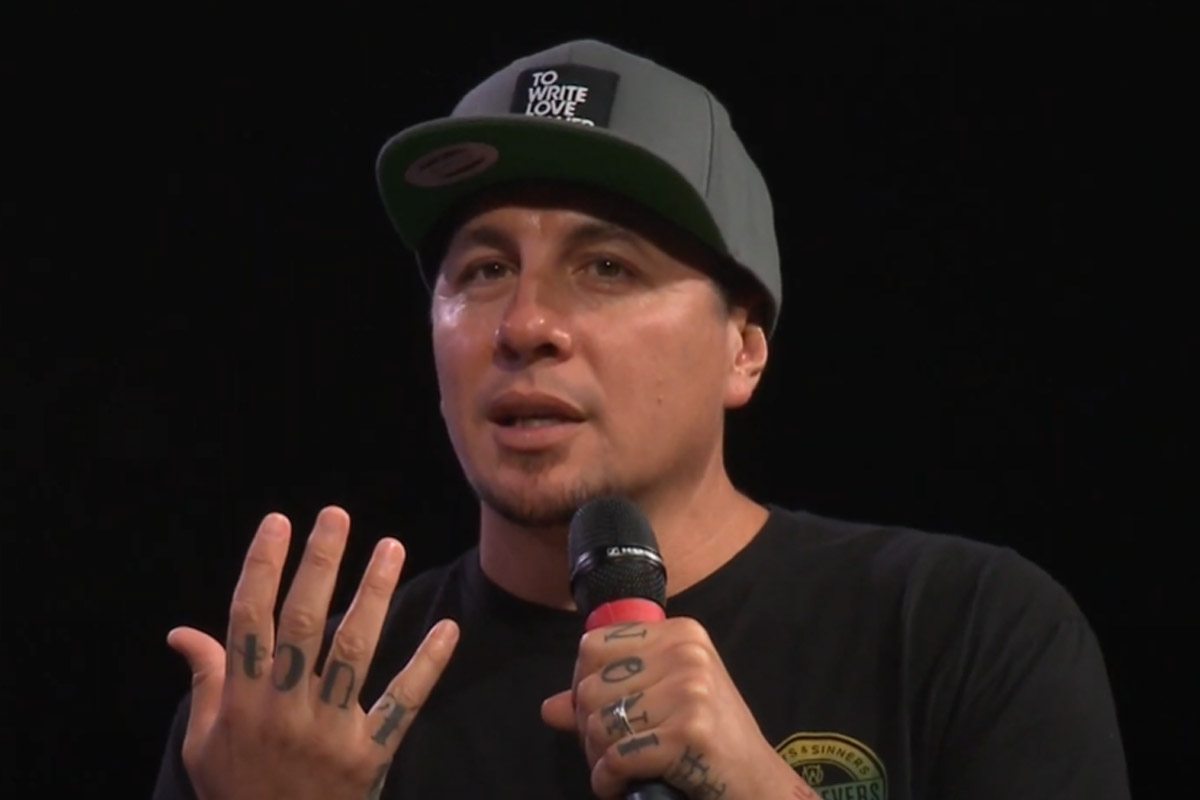P.O.D. vocalist Sonny Sandoval discussed the challenges of being a faith-oriented artist in the metal scene on the NTTFG Podcast. His religious beliefs have often led to misconceptions about the band’s music and message.
“I think that my faith is offensive to a lot of people,” Sandoval said. “And so a lot of times I feel like people are trying to put us in a box because they’re trying to say, ‘Well, don’t listen to them’ or ‘They’re not as good as this band or that band because they have Christian beliefs’ or whatever.”
“But that’s never been the forefront of what we do,” he continued. “But that’s why I write a book, that’s why I have conversations with people, because I love sharing my faith. I’ll never compromise or back down from what I believe in, but the music was to reach everybody and to make everybody smile.”
“I’m not telling you how to live your life,” Sandoval explained. “There’s no agenda here. I’m just trying to be me and be authentic. But I think we get put into a category. And, unfortunately, I have my own problems with the institution of Christianity, so it sucks when I get lumped into this religious hypocrisy that’s been happening for decades and centuries. Stuff that I absolutely hate, I’m getting lumped into this, and so I always feel like I have to defend myself.”
Sandoval’s comments highlight the complex relationship between faith and metal music. His perspective reveals the unique challenges artists face when expressing their religious beliefs in the genre.
Festival Controversies

Research from I Choose To Stand revealed that P.O.D.’s Ozzfest appearance created significant controversy. Christian groups questioned the band’s decision to perform alongside acts like Ozzy Osbourne and Rob Zombie.
The controversy demonstrated the difficult position of faith-oriented bands. They often found themselves bridging the gap between secular and religious music communities.
Mainstream Success

P.O.D.’s album ‘Satellite’ achieved remarkable commercial success. Music industry analysts documented sales exceeding 3 million copies, establishing the band as a powerful force in both mainstream and Christian music scenes.
Their commercial achievements proved that faith-based bands could reach widespread appeal while maintaining their spiritual identity.
Industry Impact

Music industry observers noted similar challenges faced by other faith-oriented metal bands like Demon Hunter.
These bands consistently navigate scrutiny from both conservative Christian groups and secular audiences. Their experiences highlight the ongoing balance between spiritual authenticity and broader musical appeal.





